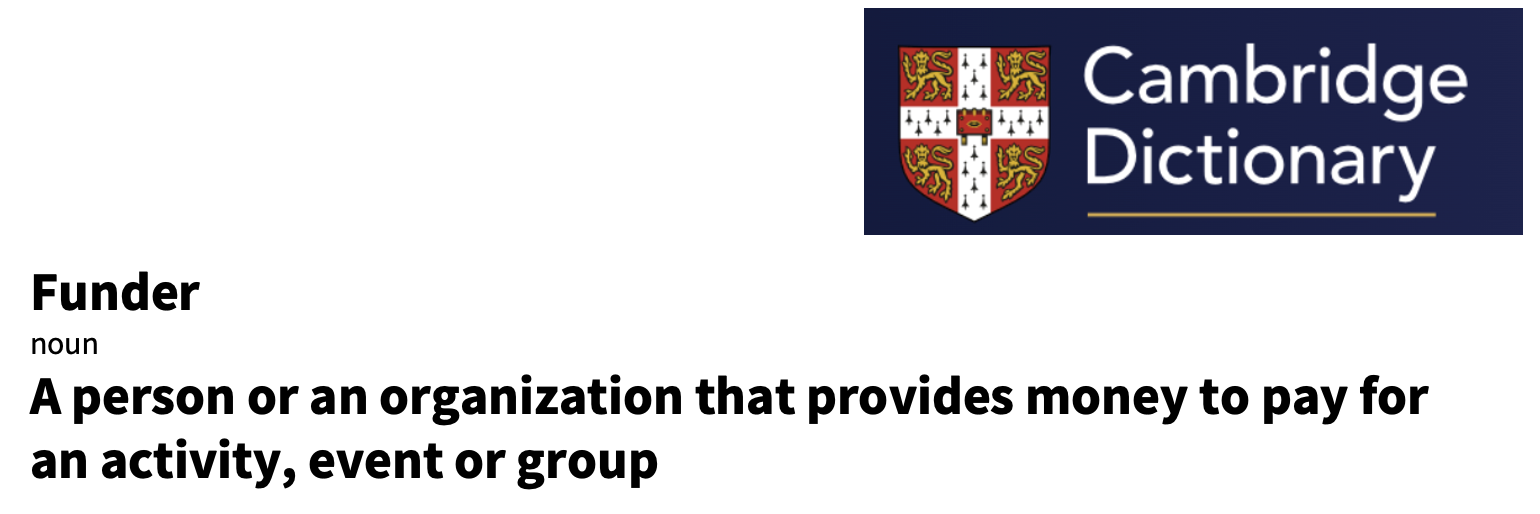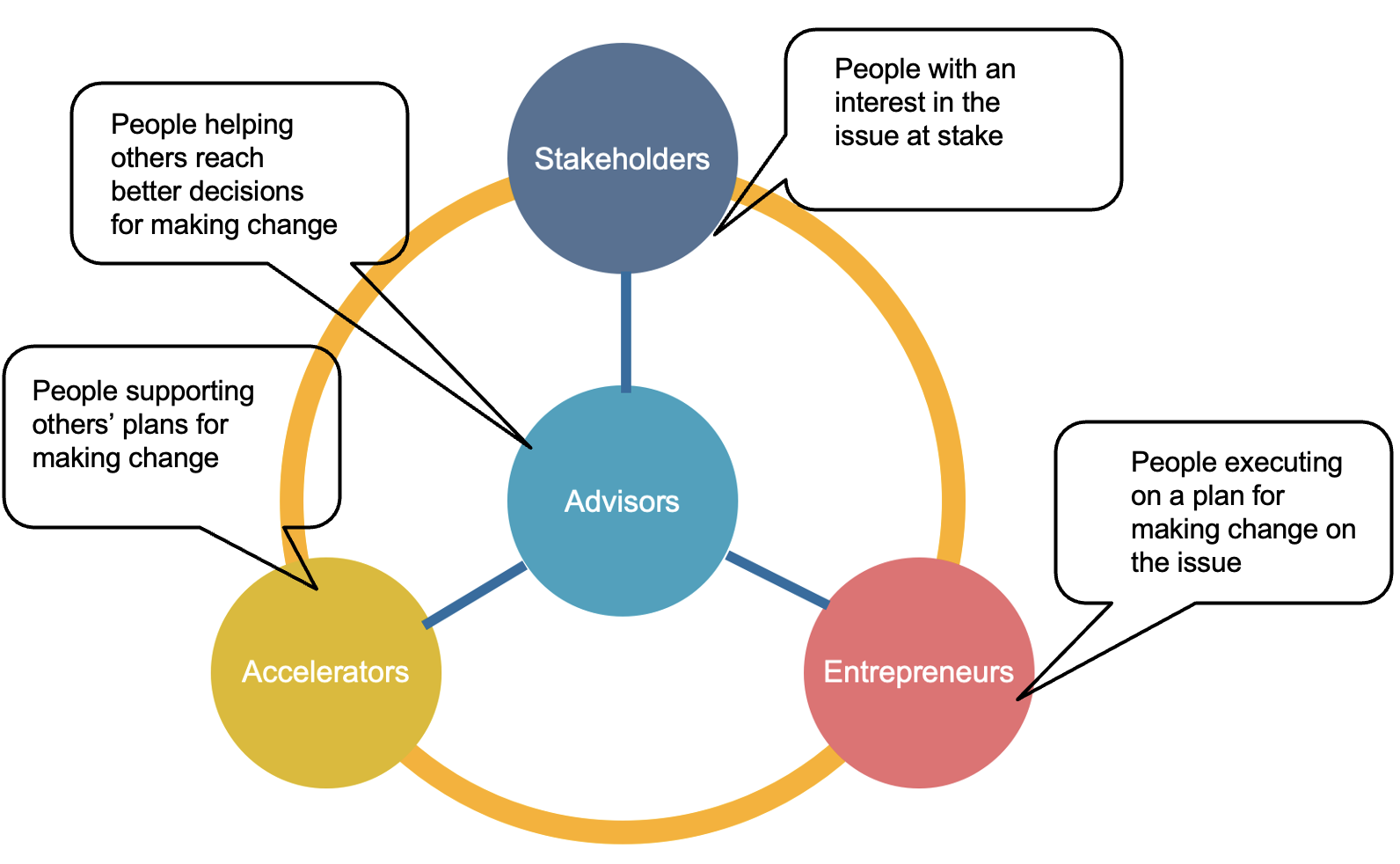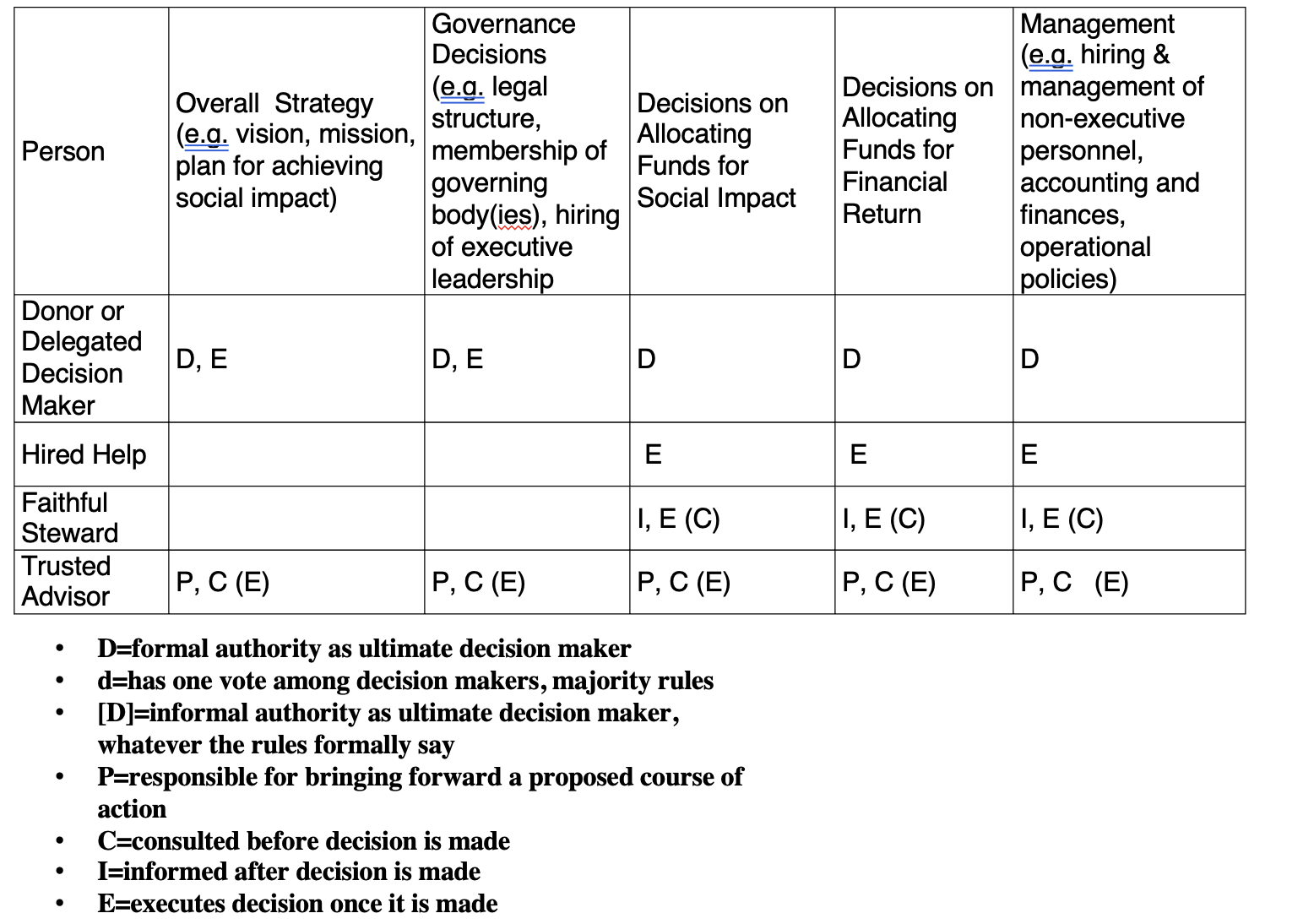"Funders" --Who Are We Really?
Oct 27, 2022Chances are, if you are involved in giving money away you've been referred to more than once as a "funder." Maybe this is even a term you use to describe yourself. But what does this term actually mean?
Funder: A Term That is Too Broad to Be Useful In Many Situations

This post looks deeper to draw some key distinctions that could be helpful whatever role you play in the philanthropic landscape.
Funder Differentiator #1: Functional Role

Strategic Philanthropy: When Funders Take on the Role of Entrepreneur
When you think about gearing up your giving, whose ideas are you planning to back? Yours or someone else’s?
Strategic philanthropy is what you do when you have your own theory of change, your own ideas about how best implement that theory, and you invest your resources accordingly.
In the most extreme version of this approach your grantees function like contractors hired to carry out elements of your strategy to your precise specifications.
When Funders Take on the Roles of Accelerator and Advisor Additional Pathways to Impact Open Up
Strategic philanthropy is NOT the only way for funders to maximize their impact.
Additional possibilities open up when funders take on the roles of accelerator and advisor.
- Seed And Speed
- Equip For The Trip
- Wings With No Strings
- Maintain And Sustain
- Outsource Without Remorse
- One And Done
Lots more on these alternative approaches in this post
Funder Differentiator #2: Entity Type
- Living donors and their philanthropic vehicles
- Autonomous, endowed philanthropic institutions (e.g. no living donors, an endowed corpus of money, and a governing board that selects its own members).
- Corporate foundations with active businesses as their donors
- Community foundations that operate as public charities with ongoing support from a variety of donors
- Pooled funds that aggregate resources from the previous four types
More about these entity types and the possibilities and issues that go along with these different structural forms in this post.
Funder Differentiator #3: Decision Making Process and Position
Another key distinguishing factor among "funders" is how they make decisions--and what role particular individuals play in that process. For these purposes it's helpful to distinguish between 4 different kinds of paid staff and advisors: hired help, faithful stewards, trusted advisors and delegated decision makers. Lots more on the distinctions between these roles in this post.
It's also helpful to recognize the different roles in the decision making process, and in some cases even to chart out the level of authority and role that specific individuals play in that process.
Propose: The person is responsible for bringing forward a proposed course of action.
Decide: This person makes decisions.
- D=formal authority as ultimate decision-maker
- d=one vote among a larger group, majority rules
- D=informal authority as ultimate decision-maker whatever the rules formally say
- Consult: This person is asked for input about a decision before it is made.
- Inform: This person is told about a decision once it is made.
- Execute: This person is responsible for carrying out the decision once it is made.
When you put this all together, it becomes pretty clear why simply referring to yourself or someone else as a "funder" can blur a whole lot of important distinctions!

Stay connected with news and articles
Join us to receive the latest news and updates from our team.
Don't worry, your information will not be shared, and you can unsubscribe at any time
We hate SPAM. We will never sell your information, for any reason.

